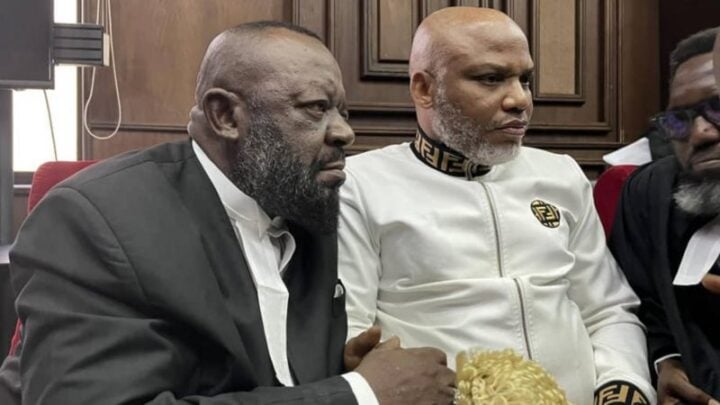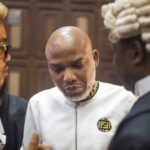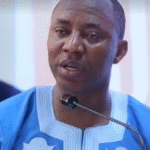The detention of Aloy Ejimakor, one of the lawyers representing Nnamdi Kanu, leader of the Indigenous People of Biafra (IPOB), has ignited questions, not only about the charges against him but also about the boundaries of legal advocacy in Nigeria.
Ejimakor, a counsel to Kanu in several ongoing matters, joined protesters on Monday in Abuja to demand the release of his client, who has been in the custody of the Department of State Services (DSS) since his re-arrest in 2021.
Kanu has since been charged alongside 12 others with various offences, including criminal conspiracy, disobedience of a lawful order, inciting disturbance, and disturbance of public peace, contrary to sections 152, 114, and 113 of the Penal Code.
While the police alleged that Ejimakor’s participation in the protest violated public order, some of his colleagues and supporters insist that he committed no offence and was merely exercising his constitutional right to peaceful assembly.





